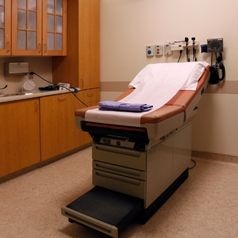- Joined
- Jun 7, 2009
- Messages
- 1,873
- Reaction score
- 61
I am an EM resident and a big follower of the white coat investor. I am finishing residency and starting a 1099 job in the middle of nowhere and getting paid middle-of-nowhere money (will earn >400,000, maybe >500,000, pre-tax).
It will of course be my first time having to deal with life of being 1099. There are the possibilities of becoming an LLC or an S corp, but from what I've read there is no advantage for a sole proprietor to do either of those things.
So, all I need is a CPA to assist me with quarterly tax estimates/payments and going through the process of learning what is able to be deducted as a business expense and what is not (i.e., whatever % of my phone bill, of my rent (for the 'home office' section), etc. etc.).
White Coat Investor has vetted a few national CPA firms that routinely work with physicians. These firms work on a one time annual fee to provide tax planning for a year. One of them costs $5,000.
Is it reasonable to spend $5,000 per tax year on a CPA firm as a high earning 1099 physician? Would you suggest there is no need for me to utilize a premium, national physician-only CPA firm and that being a 1099 contractor is a simple task for a local CPA that may be cheaper? How much do you pay for CPA services? Is it reasonable for me to want help with this the first year out to learn best what is deductible and what is not instead of doing it on my own from day 1?
It will of course be my first time having to deal with life of being 1099. There are the possibilities of becoming an LLC or an S corp, but from what I've read there is no advantage for a sole proprietor to do either of those things.
So, all I need is a CPA to assist me with quarterly tax estimates/payments and going through the process of learning what is able to be deducted as a business expense and what is not (i.e., whatever % of my phone bill, of my rent (for the 'home office' section), etc. etc.).
White Coat Investor has vetted a few national CPA firms that routinely work with physicians. These firms work on a one time annual fee to provide tax planning for a year. One of them costs $5,000.
Is it reasonable to spend $5,000 per tax year on a CPA firm as a high earning 1099 physician? Would you suggest there is no need for me to utilize a premium, national physician-only CPA firm and that being a 1099 contractor is a simple task for a local CPA that may be cheaper? How much do you pay for CPA services? Is it reasonable for me to want help with this the first year out to learn best what is deductible and what is not instead of doing it on my own from day 1?


